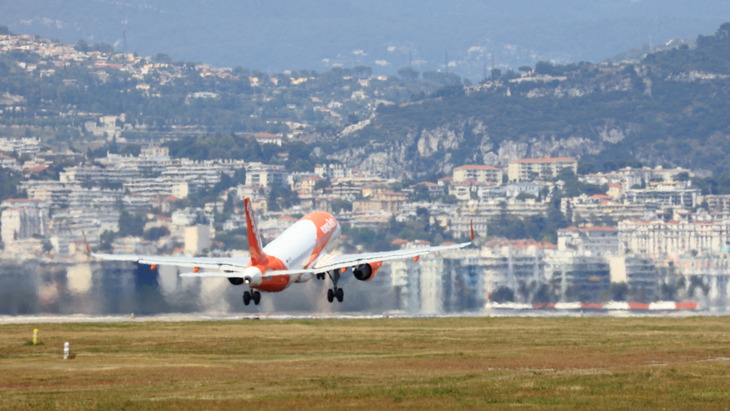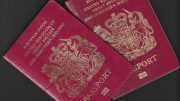A sector that in 2015 contributed £55bn to UK GDP and supported 945,000 jobs is calling for air transport not to be caught up in any “horse-trading” that might take place in the general trade negotiations, reports Aban Contractor.
Airlines in the United Kingdom are looking at registering part of their operations in other European Union countries – a move that after Brexit could see them cease to be UK airlines.
To avoid significant damage to the UK aviation sector, either a UK-EU bilateral air services agreement must be sealed before the UK leaves the EU in 2019, or a transitional arrangement must be adopted, to allow continuing UK participation in the EU single market for aviation pending conclusion of a comprehensive agreement, a House of Lords report published today said.
“Faced with the real risk that the UK may not achieve either of these objectives by 2019, airlines are considering registering part of their operations in other EU member states,” Brexit: trade in non-financial services said.
“This will probably require them, after 2019, to comply with requirements that they be effectively controlled by shareholders from an EU member state. In other words, they could cease to be UK airlines.”
To protect the UK’s status as a global leader of trade in services, the Government will need to secure the most comprehensive FTA that has ever been agreed with the EU.
According to the Office for National Statistics (ONS), globally in 2015 the UK exported £24.1 billion worth of transportation services. Approximately two-thirds of the value of those exports consisted of aviation services (£16.4bn).
The British Air Transport Association (BATA), now known as Airlines UK, told The House of Lords European Union internal market sub-committee who compiled the report, that the UK has the largest aviation sector in the EU and the third largest globally, after the USA and China.
The International Air Transport Association (IATA) said that the UK’s air market was “dominated by outbound traffic”, which accounted for “just over two-thirds of total flows” – in 2015, there were 53.9 million visits overseas by UK residents, compared to 26.2m visits to the UK by overseas residents”.
The aviation sector is important to the UK’s economy, contributing £55bn to UK GDP in 2015 and supporting 945,000 jobs in the UK. IATA said the average employee generated £84,000 in GVA (gross value added) annually, which was “over 60 per cent higher than the whole economy average in the UK”.
The EU is also the single biggest destination market for the UK, accounting for 49 per cent of passengers and 54 per cent of scheduled commercial flights. According to the ONS, in 2015, 46 per cent of all the UK’s exports and 56 per cent of all the UK’s imports in transportation services were associated with the EU. The UK had a £1.1bn deficit in transportation services with the EU in 2015, importing more services from EU based transportation providers than it exported.
The benefits of the single market in air services are clear, the report said. Sophie Dekkers, UK country director at easyJet, said the “liberation of the EU aviation market was part of the growth and the basis on which we grew as an airline and low cost [travel] grew within Europe”.
She said that “average fares are now down by 40 per cent in real terms” since 1996, and “numbers of routes have increased by 180 per cent”.
Those giving evidence on behalf of the aviation industry argued that the Government should keep air services negotiations separate from wider EU withdrawal and trade negotiations.
Brian Pearce, Chief Economist at IATA, said “one of the fears” in the industry was that “air transport will get caught up in any horse-trading that might take place in the general trade negotiations”.
EasyJet argued that aviation “should be ring fenced from the final agreement”.
The Airport Operators’ Association said the “failure to agree a new air services agreement would seriously disrupt important trade and tourism links for the UK”.
IATA, however, highlighted that such agreements took “certainly longer than two years” to negotiate, and that the European Commission had a “growing backlog of uncompleted mandates”. They said it was “unclear whether the UK would be able to jump the queue”.
The report also looked at the potential impact of Brexit on trade in four other services sectors: professional business services, digital services, creative services and tourism, education and health-related travel services.
The report concludes that a “no deal” scenario, or a deal that gave no special consideration to UK trade in non-financial services, would risk significant damage to these sectors. For instance, WTO rules do not provide for trade with the EU in aviation or broadcasting services at all.
While the UK’s global standing in services may mitigate some negative consequences, faced with a ‘no deal’ scenario, businesses could be forced either to re-structure or relocate in order to continue to operate in the way that they do today.
The chairman of the committee, Lord Larry Whitty, said the UK is the second largest exporter of services in the world and the EU receives 39 per cent of the UK’s non-financial service exports.
“This trade is critical to the UK’s economy as it creates employment and supports goods exports – we can’t afford to lose that,” he said.
“To protect the UK’s status as a global leader of trade in services, the Government will need to secure the most comprehensive FTA that has ever been agreed with the EU. Walking away from negotiations without a deal would badly damage UK plc, particularly in sectors such as aviation and broadcasting which have no WTO rules to fall back on.
“Given the consequences of a ‘no deal’ scenario and the length of time agreeing an FTA will take, the Government must prioritise securing a transitional trading arrangement with the EU to operate as we leave the EU in 2019 until a full comprehensive FTA with the EU can be concluded.”





